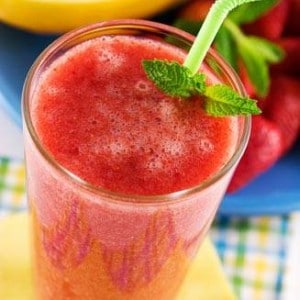Pitanga Juice: Health Benefits & Antioxidants
Discover the extraordinary health benefits of pitanga juice from Brazil. Packed with vitamin C and unique antioxidants, this fruit juice outshines Mediterranean fruits and supports multi-system health.
JUICES
CILZA DUARTE
6/11/20256 min read


Ever noticed how certain foods become wellness celebrities while others—perhaps more deserving—remain understudies waiting in the wings? That crimson Brazilian fruit in your exotic juice bar might just upstage that Mediterranean pomegranate you've been faithfully sipping.
Last April, during an unexpected detour through a coastal town in Bahia, I stumbled upon a scene that would forever change my perspective on "superfruits." Children were gathered around a vibrant tree, its branches heavy with what looked like tiny, ribbed crimson lanterns. An older woman collected the fallen fruits in a worn basket, occasionally popping one into her mouth with evident pleasure. "Pitanga," she told me, noticing my curiosity. "Melhor que remédio"—better than medicine.
I couldn't have known then that this chance encounter would lead me down a path comparing this humble Brazilian cherry against the Mediterranean fruits that dominate health headlines worldwide.
David vs. Goliath: The Nutritional Showdown Nobody Expected
The Mediterranean diet has long held nutritional royalty status—deservedly celebrated for its parade of colorful produce, heart-healthy oils, and longevity-promoting properties. We've all nodded along to the endless accolades: figs praised for their fiber, pomegranates exalted for their antioxidants, and lemons lauded for their vitamin C. (And truly, they deserve their flowers.)
But what if I told you that tucked away in Brazilian coastal forests grows a fruit that delivers a nutritional knockout punch that leaves many Mediterranean staples looking... well, somewhat ordinary?
Meet pitanga (pronounced pee-TAHN-ga)—or Brazilian cherry, as some call it in English.
This isn't just another exotic fruit temporarily trending on Instagram. Pitanga represents something more significant: a nutritional tradition with deep roots in Indigenous and Afro-Brazilian wellness practices that developed completely independently from Mediterranean influences.
The fruit itself is visually striking—deeply lobed, ranging from orange to deep scarlet when ripe, resembling tiny pumpkins about the size of cherries. But its appearance pales in comparison to what happens when you transform it into juice.
The Vitamin C Champion You've Never Heard Of
Allow me to put this in perspective without drowning you in nutritional percentages.
A single glass of pitanga juice contains more vitamin C than an entire day's worth of oranges—those Mediterranean citrus darlings we've been told represent the gold standard of vitamin C. We're talking about a concentration that would make a lemon weep with inadequacy.
This matters because vitamin C isn't just about avoiding scurvy (though there's that). It's central to collagen production—the architectural framework of your skin—and immune function. The concentration found in pitanga means your body gets a flood of this essential nutrient in a single, delicious serving.
Na verdade, pensando melhor, the comparison becomes even more fascinating when we consider antioxidant capacity. While Mediterranean pomegranates have rightfully earned their reputation as antioxidant powerhouses, pitanga contains a particular class of anthocyanins—the compounds that give it that dramatic red color—that research suggests may be especially effective at neutralizing specific types of free radicals.
Dr. Luiza Campos, nutritional biochemist at the Federal University of Rio de Janeiro, explains: "What makes pitanga particularly interesting is its unique antioxidant profile. While Mediterranean fruits often contain similar compounds, pitanga offers them in combinations and concentrations we don't typically see elsewhere."
I approached this claim with healthy skepticism—after all, every regional cuisine tends to exaggerate the benefits of its local ingredients. But the biochemical analysis is compelling.
Beyond Antioxidants: The Multi-System Approach
The Mediterranean wellness approach emphasizes balance and diversity—principles I deeply respect. But pitanga brings something different to the table: a multi-system targeting that few individual Mediterranean foods can match.
Consider the cardiovascular system. While olive oil (Mediterranean star that it is) primarily supports heart health through its fat profile, pitanga juice approaches cardiovascular wellness through multiple pathways simultaneously:
Its natural diuretic properties help regulate blood pressure by reducing fluid retention—a mechanism entirely different from how Mediterranean foods typically support heart health.
The anti-inflammatory compounds in pitanga juice help reduce systemic inflammation—a known contributor to heart disease—through pathways complementary to those activated by Mediterranean foods.
"Quem tem pitanga no quintal tem farmácia natural," goes an old Brazilian saying—"Whoever has pitanga in their yard has a natural pharmacy." This isn't mere folklore; it's generational wisdom now finding validation in research labs.
The digestive benefits deserve special attention. The fiber content in pitanga juice (yes, even in juice form when properly prepared) supports gut health in ways similar to Mediterranean figs but with an added bonus: traditional preparation methods in Brazil often preserve more of the fruit's skin, where much of the prebiotic fiber resides.
The Climate Connection: Adaptation as Nutritional Strength
Here's something you won't find in Mediterranean diet cookbooks: the relationship between climate adaptation and nutritional density.
Pitanga trees thrive in Brazil's coastal areas, where intense sun exposure and variable rainfall create environmental stress. This stress triggers the plant's defensive production of phytochemicals—the very compounds that make the fruit so beneficial for human consumption.
(I find this evolutionary relationship between plant stress and human health benefits endlessly fascinating. Nature's most remarkable pharmacy often develops in response to environmental challenges.)
Unlike many Mediterranean fruits that have been cultivated for maximum size and sweetness (sometimes at the expense of nutritional density), pitanga remains relatively untouched by agricultural manipulation. The fruits you'll find today closely resemble those consumed by Indigenous peoples centuries ago.
João Pereira, a small-scale organic farmer in Pernambuco who has grown pitanga trees for three decades, shared some wisdom: "É como se a árvore fosse esperta"—it's as if the tree is smart. "Ela sabe do que precisamos"—she knows what we need.
This intimate connection between local ecology and human nutrition represents a perspective often missing from globalized wellness conversations dominated by Mediterranean paradigms.
Modern Research Catches Up to Traditional Knowledge
While Mediterranean foods have enjoyed decades of intensive research funding and global promotion, pitanga is just beginning to receive scientific attention commensurate with its potential.
Recent studies from Brazilian universities suggest that compounds in pitanga juice may help regulate blood sugar levels—addressing a health concern that transcends dietary patterns worldwide. The mechanisms appear to involve both improved insulin sensitivity and moderated glucose absorption—a dual-action approach that complements rather than replicates the benefits of Mediterranean staples like whole grains.
The skin benefits are particularly noteworthy. While Mediterranean diets support skin health primarily through essential fatty acids and antioxidants, pitanga offers a more direct intervention: vitamin A precursors that specifically target skin cell regeneration alongside vitamin C that supports structural integrity.
I spoke with dermatologist Dr. Ana Ribeiro from São Paulo, who has begun recommending pitanga juice to patients with specific skin concerns. "What's remarkable is how quickly we observe improvements in skin luminosity," she noted. "There's something about the particular combination of nutrients that seems to work synergistically."
From Brazilian Backyards to Your Wellness Routine
I'm not suggesting you abandon your Mediterranean-inspired eating patterns—that would be unnecessarily restrictive. What I am advocating is an expanded nutritional horizon that incorporates wisdom from multiple traditional systems.
Here's how you might thoughtfully integrate pitanga into your existing wellness routine:
Start your day with a small glass of pitanga juice alongside your breakfast. The vibrant color alone signals its potency—a visual reminder of the phytonutrient density you're consuming. The taste? Imagine a complex sweet-tart profile with notes of cherry, cranberry and a hint of resinous herbs—a far more interesting flavor journey than your standard Mediterranean fruit.
For an afternoon refresher when you might typically reach for a citrus-infused water (very Mediterranean), consider a pitanga-based alternative instead. The natural sweetness satisfies cravings while the vitamins and minerals support sustained energy.
And for those exploring the intersection of culinary tradition and wellness? Pitanga can be incorporated into both sweet and savory applications that would intrigue any Mediterranean-focused chef. Its unique tangy-sweet profile pairs surprisingly well with both fresh cheeses (a Mediterranean crossover) and grilled seafood.
The Global Palate: Beyond Either/Or Thinking
Looking beyond specific comparisons, there's a broader perspective worth embracing: nutritional wisdom doesn't respect geographical boundaries. The most robust approach to wellness incorporates beneficial practices from multiple traditions rather than pledging exclusive allegiance to any single system.
"Cada fruta no seu tempo," as Brazilians say—"each fruit in its season." This expression captures something essential about nutritional wisdom that transcends particular dietary doctrines: context matters, diversity is strength, and there's a time and place for different nutritional strategies.
The Mediterranean diet has given us invaluable insights about whole foods, plant-forward eating, and the importance of communal meals. Brazilian traditions offer complementary wisdom about botanical medicine, utilizing biodiversity, and adapting to local conditions.
A Personal Reflection: Bridging Nutritional Worlds
Having explored nutritional traditions across continents, I've become increasingly convinced that the future of wellness lies not in declaring one approach superior to all others, but in thoughtful integration.
What fascinates me most is how traditional wisdom often anticipates scientific discoveries by centuries. Long before researchers identified specific compounds in pitanga, Brazilian grandmothers were making pitanga juice for children recovering from illness, intuitively understanding its immune-supporting properties.
Pitanga represents something beyond itself—it's an invitation to expand our nutritional thinking beyond the familiar Mediterranean framework that dominates wellness conversations. It reminds us that health solutions often emerge from the unique relationship between people and their local ecology, developing over generations of observation and experience.
The next time you reach for that bottle of pomegranate juice or Mediterranean berry blend, perhaps pause and consider what other traditional beverages might complement your wellness journey. Brazil's rich tradition of healing foods—with pitanga as just one vibrant example—offers a powerful reminder that nutritional wisdom flowers in many different gardens.
After all, isn't true wellness about embracing the best insights from around the world rather than limiting ourselves to a single tradition, however venerable? I'll raise a glass of ruby-red pitanga juice to that expansive vision.
Visit myamazonfood.com to discover more about pitanga juice and other Brazilian superfoods that can transform your approach to nutrition and wellness.
#BrazilianSuperfoods #PitangaJuice #MyAmazonFood #NaturalWellness
Inspiration - Health
Explore recipes, tips, and culinary articles today.
wellness
Flavor
cilzaduarte@gmail.com
55 81 98087-8684
© 2025. All rights reserved.
